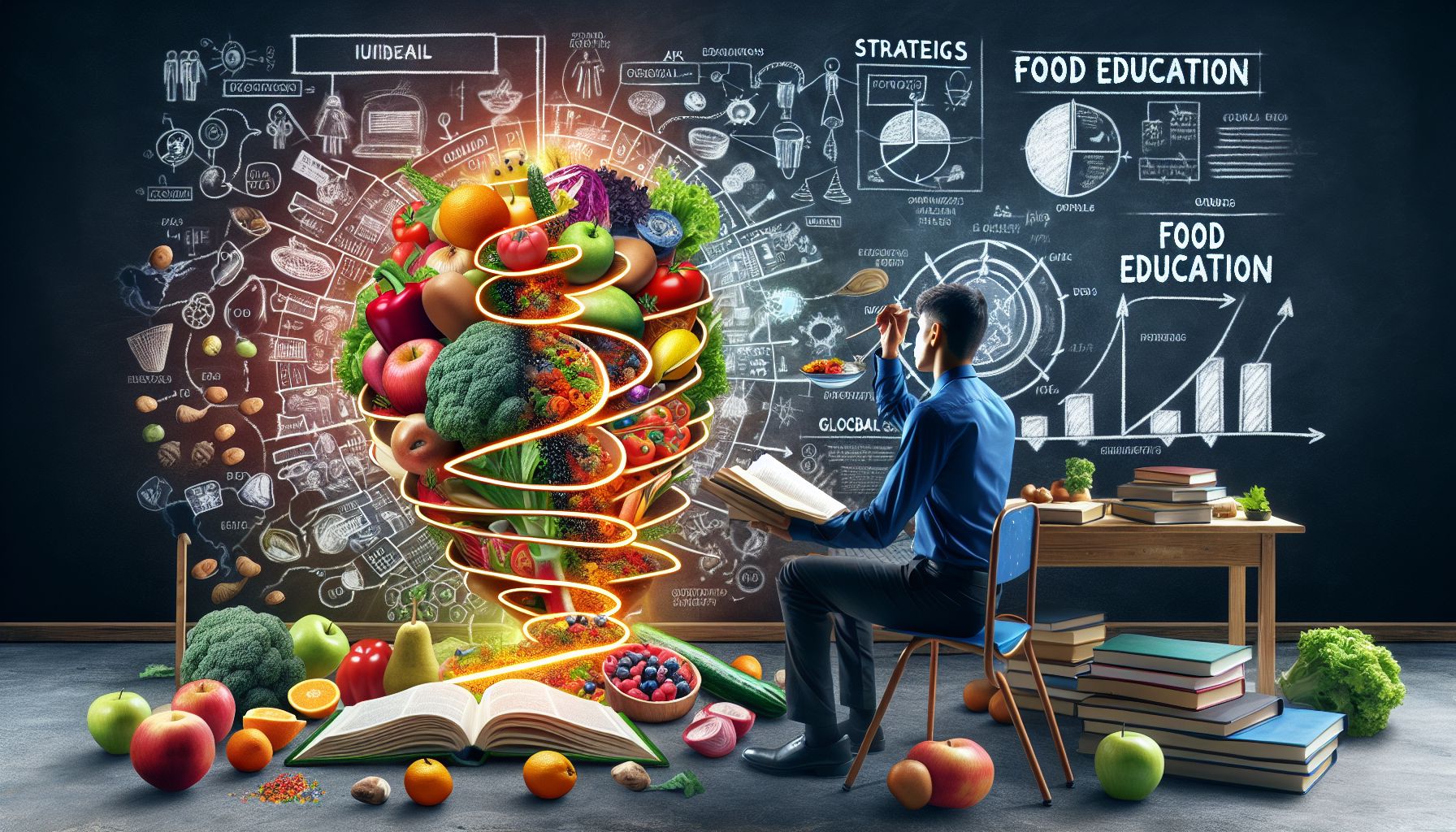How often do we pause and think about the food we consume daily? Is it just a mundane ritual or a vital component deserving more attention? Statistics shockingly reveal that nearly 40% of adults worldwide are overweight, and a significant portion of this is due to a lack of knowledge about food and nutrition. Such alarming data underscores the importance of food education, not just as a culinary obsession, but as a health necessity and a strategic priority for businesses worldwide.
 The Recipe of Knowledge
The Recipe of Knowledge
Food education is more than just learning what to eat. It’s a comprehensive understanding of where our food comes from, how it’s processed, how it affects our health, and its impact on the environment. Its benefits extend beyond individual health – it can influence the dynamics of global health, environmental conservation, and economic growth.
The modern consumer is more health-conscious and environmentally aware. This heightened awareness and shift in consumer preference creates openings for businesses to innovate, adapt, and profit. Thus, maintaining food literacy becomes not just a health prerogative but a business strategy.
The Business of Health and Gastronomy
Companies worldwide are beginning to comprehend the impact of food literacy on consumer behavior and consequently, on their business outcomes. The organic food market, which was once a niche sector, is now worth over $100 billion globally and continues to grow, signaling an increasing trend towards healthier eating habits.
Similarly, culinary tourism has surged in popularity, highlighting the intersection of travel and gastronomy. Enterprises that understand the importance of food literacy and cater to the enlightened traveler stand to profit substantially in this burgeoning segment.
Additionally, businesses are realizing the financial implications of workforce health. Companies investing in the food education of their employees report reduced healthcare costs, lower absenteeism, and increased productivity. Simply put, a healthier workforce is a more profitable one.
The Call for Weaponizing Food Education
According to the World Health Organization, most of the world’s population live in countries where being overweight kills more people than being underweight. Furthermore, an increase in diet-related chronic diseases like diabetes, heart disease, and certain cancers is worrisome.
These stark health realities compel us, as individuals and companies, to weaponize food education. Schools should incorporate food literacy into their curriculum, businesses should educate their employees about right dietary choices, and policy-makers should prioritize public health over commercial interests of processed food manufacturers.
In Conclusion: Food Education as a Strategic Imperative
Food education is no longer just about making healthy food choices. It’s the cornerstone of a lifestyle that values personal health, environmental sustainability, and economic progress. Deepened food literacy strengthens consumer discernment, catalyzes business innovation, and drives socioeconomic development, making it a strategic priority today. Every bite we take is an act of global importance; it behooves us to make it count.
Food education is not a luxury or a passing trend. It’s an exigency. And those who understand this will lead the world towards a healthy, environmentally sustainable, and economically prosperous future.

